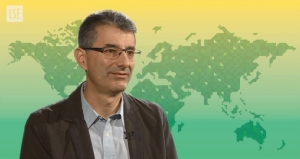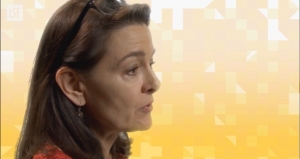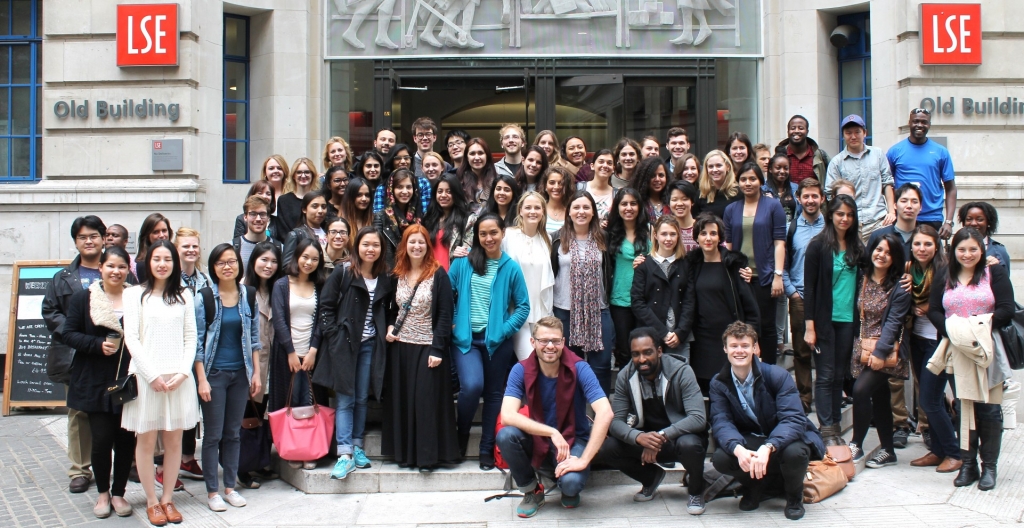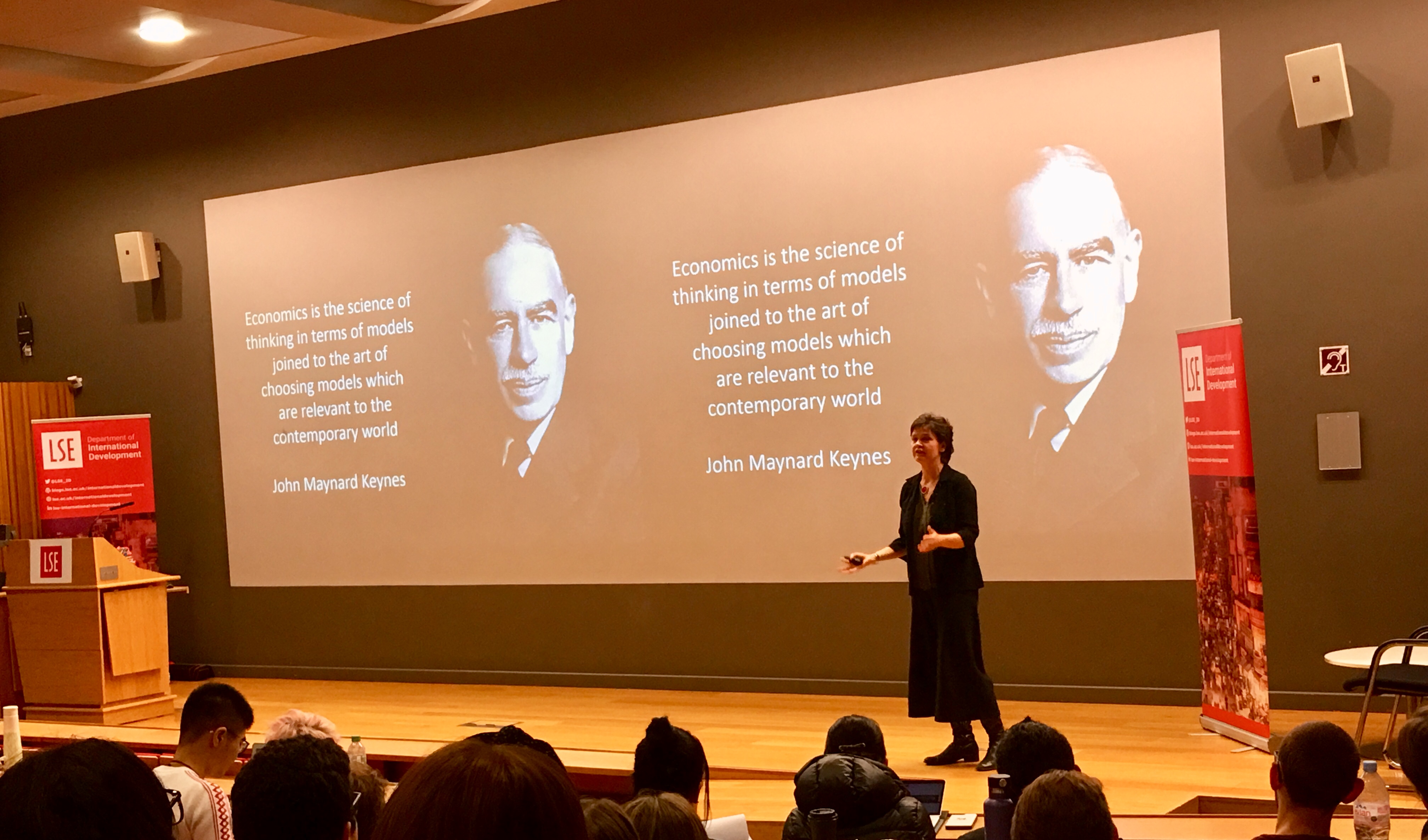Throughout the next week, we’re going to share some new introductory videos for the four MSc courses. Today, we start with Development Studies.
Are you a past or present MSc Development Studies student? Have you enjoyed the course? Would you recommend it to interested students? Let us know by leaving a comment below!
About the MSc Development Studies
Development studies starts from the problems and we try to find solutions. Why are some countries rich and others poor, some communities rich and others poor? Why have some developed faster and others slower? Some fall into conflict, others survive in peace.
It’s been running since 1991. It’s the most comprehensive of the courses. Students who do the Masters in Development Studies become masters of the subject. It’s the most challenging of our courses. It very often seems the most difficult, but it also then has the most reward.
The course is based on a full-year core course, and that’s really important because students get anchored in a group who they interact with right throughout the year. We’re looking at political economy, and we’re looking at the mainstream theories that inform development policy at places like the World Bank and the IMF, and we try to get students to think critically.
We look at China and India, comparative case studies like Korea and Brazil, like Nigeria and Mexico, or Tanzania and the Democratic Republic of Congo. Why have they had such different development trajectories? What can we learn about it for policy today?
So we introduce students to the research and to the writing about those sectors in development – about trade and about finance and technological innovation. And then finally, in the core course, we’re looking at the cutting-edge issues in policy debates. We look at problems of inequality, at poverty, and what can be done to put people out of poverty. We’re looking at transnational corporations, the roles they play – positive and negative, the patterns of gender inequality and how people have overcome them.
Students are able to take a number of optional courses. They work with their supervisors to have a programme that’s individually designed for them – going to the government department, social policy department, sociology department, combining an anthropology course and economics course, concentrating on environmental issues if they’s what they prepare to do – because all of these disciplines contribute to understanding development.
Admissions Criteria for the Programme
The first important characteristic of any student coming into the MSc in Development Studies is excellence: they have achieved excellence in their previous studies or in their work environment. So it’s competitive to get in, but it brings together a group of really talented people.
And there’s a really wide range of disciplinary backgrounds from which students come. They come from anthropology or they study sociology. But even some of them have studied English Literature and some of those do the best on the programme.
Some of the students are right out of undergraduate studies, others are mid-career professionals who are taking time off to learn the theoretical foundations behind their work. Typically, a class of about 15 to 17 students will see students from at least 13 different countries, so I always tell the students that in this programme they learn as much from each other as they learn from us.
Career Opportunities for MSc Development Studies Graduates
Our students from the MSc in Development Studies have gotten jobs in the World Bank, the International Monetary Fund, and all the UN agencies – from the UN Development Programme to the UN Office for Peacekeeping Operations.
We’ve often educated the future leaders of NGOs like Oxfam, World Development Movement, Christian Aid, and they go on to work in governments.
A lot of students go on to work in the private sector. Banks and international investment agencies have often preferred students from development studies over those from economics.
We have students who have started their own businesses, very successful consultants, and last but not least, we have students who aspire to do a PhD – to go on to further academic research.
They’re now teaching at schools like the London School of Economics, but also the Ivy League schools in the US, at Stanford and Harvard, and we see students go on to teach at the universities of the developing countries themselves.
The Class of 2014/15
Learn more about our other courses
   |







This year has been the most challenging year of my life, but every moment has been worth it. I leave every class brimming with new ideas and feeling so inspired by my incredible professors. I feel so privileged to have studied Dev Studies this year, in such an amazing university with such wonderful staff and teachers. Aside from the academic excellence of the Development Studies department, I have made friends from all over the world for life. I think this department is unique in that sense; each student is here because they passionately want to make a change in this world. Each new student I meet has an incredible story to tell about how they have found their way to LSE and what they hope to do in the future. This group of students is exceptionally smart, humble, brave and interesting. I knew I would enjoy my time here at LSE, but I could not have imagined just how wonderful it would be. I recommend this wholeheartedly to all potential applicants and I wish I could start all over again.
Thank you so much to my wonderful classmates who have inspired me everyday and to our professors who encouraged and mentored us every step of this once-in-lifetime journey.
Development issues have grown more complex. The impacts of globalisation, income inequality, climate change, world trade imbalance and the role of the state have made development studies much more complicated and quite challenging. Development is no more a study of mere economic growth. It is also strongly linked with questions of fundamental human rights and administration of justice. It it an issue of who works how and who gets what.I think there is no place like LSE to get the highedt level education on development and related studies.